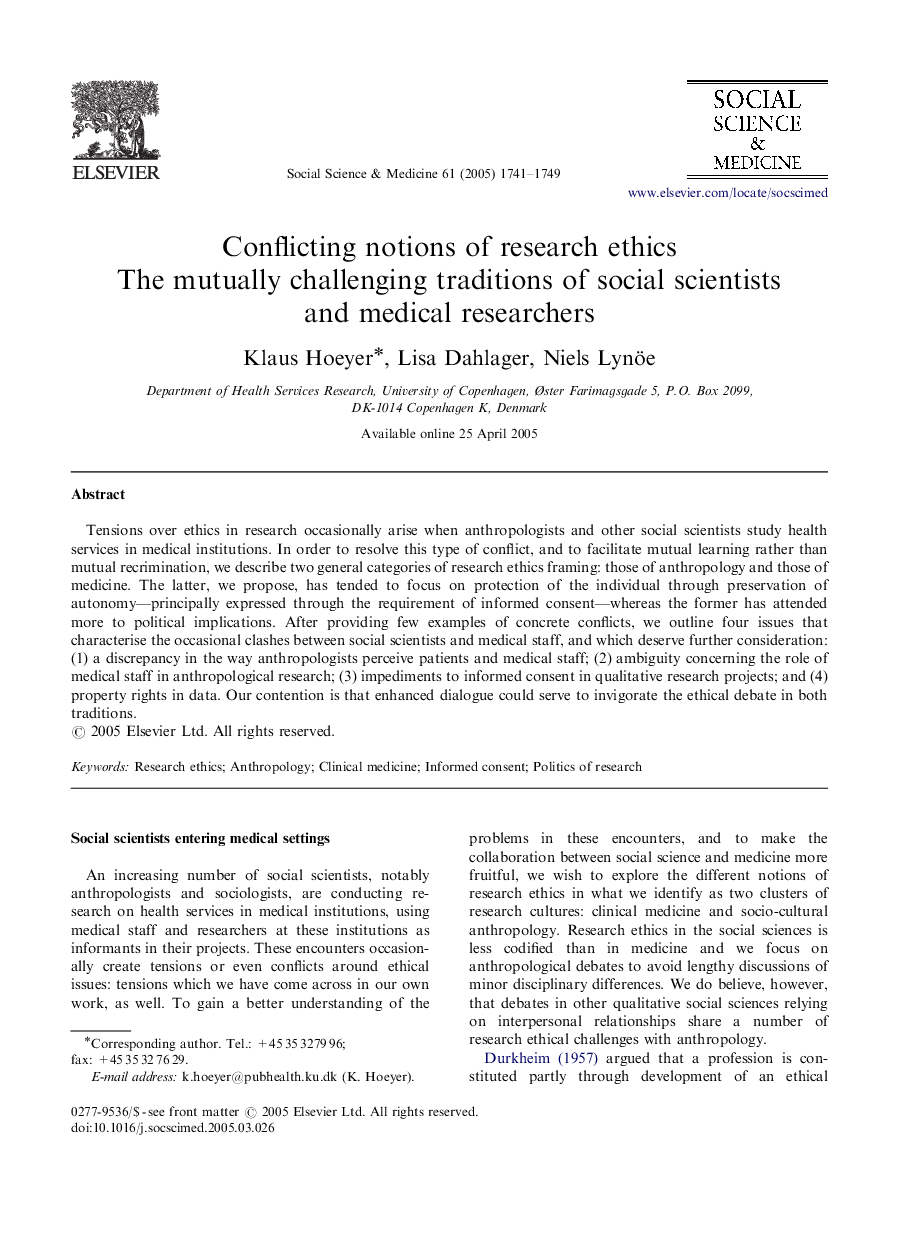| Article ID | Journal | Published Year | Pages | File Type |
|---|---|---|---|---|
| 10472400 | Social Science & Medicine | 2005 | 9 Pages |
Abstract
Tensions over ethics in research occasionally arise when anthropologists and other social scientists study health services in medical institutions. In order to resolve this type of conflict, and to facilitate mutual learning rather than mutual recrimination, we describe two general categories of research ethics framing: those of anthropology and those of medicine. The latter, we propose, has tended to focus on protection of the individual through preservation of autonomy-principally expressed through the requirement of informed consent-whereas the former has attended more to political implications. After providing few examples of concrete conflicts, we outline four issues that characterise the occasional clashes between social scientists and medical staff, and which deserve further consideration: (1) a discrepancy in the way anthropologists perceive patients and medical staff; (2) ambiguity concerning the role of medical staff in anthropological research; (3) impediments to informed consent in qualitative research projects; and (4) property rights in data. Our contention is that enhanced dialogue could serve to invigorate the ethical debate in both traditions.
Related Topics
Health Sciences
Medicine and Dentistry
Public Health and Health Policy
Authors
Klaus Hoeyer, Lisa Dahlager, Niels Lynöe,
